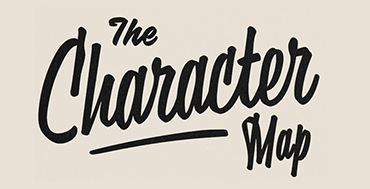2009 Emmy Nominee Analysis


The reason each of these shows is successful is the clarity and consistency of the major characters. Each protagonist is written with authenticity and “feels real.” The storylines track the characters’ major life questions and the audience is compelled to watch how the drama unfolds.
Here’s a brief synopsis of the Emmy nominated shows and protagonist Character Type.
Big Love is the story of Bill Henrickson (Bill Paxton), the head of a polygamist family of three very different wives (and three sets of children). Bill is a decent God-fearing man who tries to be a good husband and father. He is a quintessential Power of Conscience character. Bill’s stoylines and the dramatic throughlines of the show revolve around questions of “what is the higher duty,” “what is right, just and moral” and “how much wrong-doing is permissible in pursuing what is right.” Bill is caught in circumstances where he must continually decide who and what to put first in a long list of conflicting demands and duties. His nemesis has been Roman Grant (Harry Dean Stanton), a Power of Will character who will stop at nothing to expand his territory and control of the Juniper Creek “family.” Bill is challenged to uphold his own moral standards and personal integrity while fighting Roman.
Breaking Bad follows protagonist Walter White (Bryan Cranston), a chemistry teacher diagnosed with Stage III lung cancer. He is given two years to live. Walter “has a brain the size of Wisconsin” and uses his scientific expertise to cook and sell crystal meth. He is a Power of Reason character. Like the title characters in Dexter and House he is alienated from his career, his family and his life. He is filled with a sense of his own superiority and a bitter contempt for others. Even after an improvement in his diagnosis he still seeks the release and intensity of feeling that comes from his criminal activity.
Damages tracks the relationship of a young lawyer, Ellen Parsons (Rose Byrne), with her brilliant but ruthless boss and professional mentor, Patty Hewes (Glenn Close). The setting is the law firm Hewes runs in New York City and various cases the firm handles involving double-dealing, duplicity and conspiracy. Ellen is a Power of Truth character and the series is about “who can you trust,” “what is really going on” and “who is betraying whom.” Nothing is what it seems and it is folly for Ellen to fully trust anyone.
Dexter revolves around the life of Dexter Morgan (Michael C. Hall), a serial killer who is also a crime scene forensic expert specializing in blood spatter patterns. Dexter is brilliant but alienated from his feelings and doesn’t even feel completely “human.” He is a Power of Reason character and continually wonders if he is a “man or a monster.”
House chronicles a brilliant, superior and very alienated Doctor House (Hugh Laurie). He is an unparalleled expert medical diagnostician. House is a Power of Reason character like Dexter and Walter White. He is contemptuous of humanity in general and dismissive of any sentimentality or warm human feelings toward others. Others on the show quite frequently wonders if House is a “man or a monster.”
Lost is about a group of people marooned on an island after an airline crash. The survivors, led by Dr. Jack Sheppard (Matthew Fox), try to make sense of their predicament. The island is filled with mysterious forces that can’t be explained and which erupt at unpredictable moments. It is chaos. Jack is a Power of Reason character, a man of science. The survivors defer to his expertise. Jack starts the show alienated from his wife, his father and the patients in his practice. His stoylines and the dramatic throughlines of the show revolve around questions of “How can I make sense from a world gone mad?” “Do I have enough information to understand the situation?” “How can order be restored from chaos?” “Will I be overwhelmed (emotionally or otherwise)?”
Mad Men follows protagonist Don Draper (Jon Hamm), a man with a shadowy past who stole another soldier’s identity at the end of World War II. Don is a Power of Truth Character. He is an ad man, a master illusionist, twisting words and images to suit clients’ sales pitches. He has trouble discerning the truth about himself, his wife and his target marketing audience: (“What if women want something else? Inside. Some mystery wish that we’re ignoring?”) He works in a cutthroat environment where duplicity, betrayal and infidelities are everywhere. He doesn’t fully trust anyone including himself.
That’s a quick line up of the Emmy Nominees. Each show has a clear, sharply defined protagonist at the heart of its story. That’s the key to success in any series or feature film. Each character in the nominated shows is a complex fully formed human being. Each character “feels real.” Each character is true to his or her type. Defining Character Type is a first step in creating great characters.



Create a visual map for a character’s emotional journey. Pull stories from character rather from rote story structure beats. Some of the largest international media companies, use this in story and character development.


A clear concise guide for writers and producers to have by their side as they embark on a project. It gives a really vital reminder of what is key for story success.

No comment yet, add your voice below!